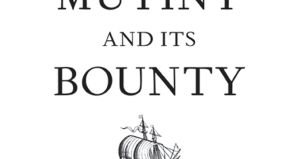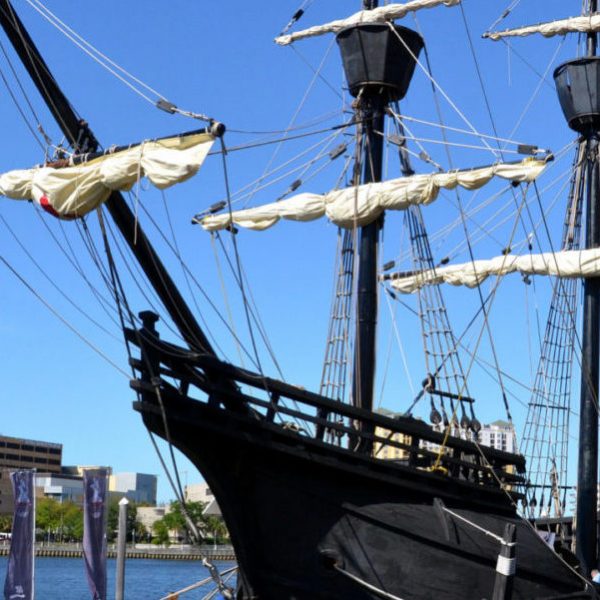Mutiny and Its Bounty
 The Ides of March commemorates one of history’s most famous mutinies: the murder of Julius Caesar at the Roman Senate in 44 B.C. Turning against established leadership is thoroughly covered in Mutiny and Its Bounty: Leadership Lessons from the Age of Discovery, in which authors Patrick J. Murphy and Ray W. Coye explore how great seafaring captains like Columbus and Magellan not only quelled mutinies but also built upon such incidents to strengthen their enterprises, suggesting that today’s organizational leaders have much to learn about leadership and tactics from these earlier masters. We spoke with Murphy about some of the key players and ideas highlighted in their new book to better understand how organizations are less violent than the shipboard rebellions of Columbus’s day, but the challenges leaders face are very much the same.
The Ides of March commemorates one of history’s most famous mutinies: the murder of Julius Caesar at the Roman Senate in 44 B.C. Turning against established leadership is thoroughly covered in Mutiny and Its Bounty: Leadership Lessons from the Age of Discovery, in which authors Patrick J. Murphy and Ray W. Coye explore how great seafaring captains like Columbus and Magellan not only quelled mutinies but also built upon such incidents to strengthen their enterprises, suggesting that today’s organizational leaders have much to learn about leadership and tactics from these earlier masters. We spoke with Murphy about some of the key players and ideas highlighted in their new book to better understand how organizations are less violent than the shipboard rebellions of Columbus’s day, but the challenges leaders face are very much the same.
Yale University Press: Your book can be useful for leaders and entrepreneurs hoping to avoid a mutiny, but is it also a useful handbook for mutineers?
Patrick J. Murphy: Yes, the book delineates some useful tenets. Seafarers in the Age of Discovery were extremely clever about mutiny and leadership in uncertain circumstances. They exemplified what makes today’s best entrepreneurs successful. Mutinies both then and today entail early‑stage secrecy and bottom‑up strategic actions that threaten established elements in the environment. Entrepreneurs shake up markets, whereas mutineers shake up organizations.

YUP: Which of the seafarers among those you studied faced the most intense mutiny?
PJM: Magellan, because of the steps he took to quell it. He actually faced three mutinies during his most famous enterprise. The second one was rather grisly. Our primary sources contain explicit details, which we retained to tell a richer story and reflect history as clearly as possible.
YUP: What are some warning signs of mutiny that a leader should look out for?
PJM: A gap emerges between leaders and members. It happens without being intended. Eventually, a spokesperson emerges. His or her power and voice derive from the expression of members’ shared values. A leader who does not share those values unintentionally does things to which coordinated mutinous action can be a natural response. Mutiny is rarely undertaken for its own sake or for destructive purposes. Yet Age of Discovery mutinies could be violent. Today’s mutinies are gentler but still intense. The underlying mechanism is identical.
Patrick J. Murphy is associate professor of management, DePaul University. He is chair of the Management History Division in the Academy of Management. He lives in Chicago, IL. Ray W. Coye is associate professor emeritus of management, DePaul University. He lives in Ferndale, WA. The authors each have maritime service backgrounds and seafaring experience.


























